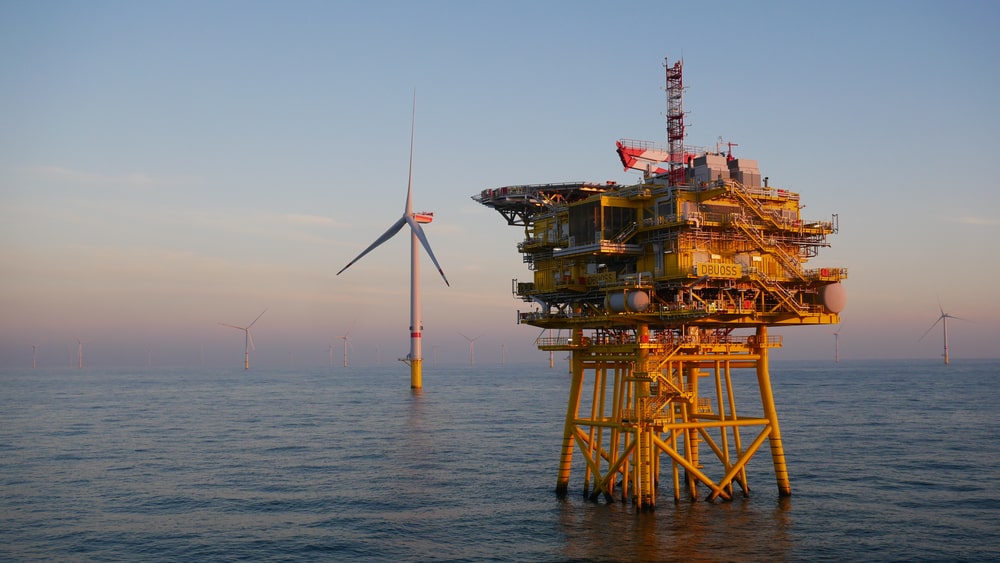News - Construction News
Nuclear and hydrogen innovation funding

UK Government has committed to the future of clean power production in the country, with some £100M in funding for nuclear and clean hydrogen energy.
£75M has been earmarked to support nuclear fuel production and next generation advanced nuclear reactors in the UK, while a further £25M will be directed towards innovative new technologies that will generate clean hydrogen from biomass and waste.
Following the invasion of Ukraine, energy production has been thrown into the spotlight, with countries looking for new solutions to home-grown energy, bearing in mind net zero commitments and the need for green energy.
The funding will support the development of new and innovative nuclear energy with up to £60M funding designed to kick start the next phase of research into new cutting-edge high temperature gas reactors (HTGR), a type of advanced modular reactor (AMR), which could be up and running by the early 2030s. The funding, from the Advanced Modular Reactor R&D programme, aims to get a demonstration project of the engineering design up and running by the end of the decade.
HTGRs are typically smaller than conventional nuclear power stations, more flexible, and could be built at a fraction of a cost. It is hoped that as well as safely creating electricity to power homes, HTGRs will bolster the UK’s energy sovereignty and security, by reducing reliance on expensive fossil fuels, as well as generate by-products such as low-carbon hydrogen. By generating temperatures of up to 950 degrees, HTGRs provide a source of clean, high temperature heat that could help decarbonise industrial processes in the UK.
The funding for HTGR innovation is supported with a further £4M for the AMR Knowledge Capture Project, to facilitate knowledge capture and sharing to reduce the time, risk, and cost of the programme delivery.
Meanwhile, up to £13M will be directed towards nuclear fuel fabricators Westinghouse in Preston. The funding will help the company develop the capability to convert both reprocessed uranium and freshly mined uranium to make new fuel.
As well as bolstering UK energy security, ministers hope it will also deliver export opportunities for the sector and position the UK as a key international supplier of nuclear fuel and fuel cycle services.
Energy and Climate Minister Graham Stuart said: “This funding package will strengthen our energy security, by ensuring we have a safe and secure supply of domestic nuclear fuel services – while also creating more UK jobs and export opportunities.”
Looking towards the future, Government has also set aside funding to investigate the use of hydrogen. Set to become a super-fuel of the future, accelerating the use of hydrogen will be key to the UK’s greener energy future.
£25M will help accelerate the deployment of hydrogen from bioenergy with carbon capture and storage (BECCS) – a unique ‘negative emission’ technology that can permanently remove CO2 from the atmosphere. Biomass absorbs CO2 during growth which is then captured and permanently stored during the hydrogen generation process.
Hydrogen BECCS technologies will have a key role to play on the UK’s path to net zero emissions, providing hydrogen as a clean fuel for hard-to-decarbonise sectors such as transport and heavy industry.
Energy Minister Lord Callanan said: “With its potential to go one step further than net zero, and be carbon negative – removing greenhouse gas emissions from the atmosphere – this hydrogen technology will be crucial to achieving our climate goals.
“Our £25 million government funding to develop this technology will help unlock private investment and generate new green jobs – all while cutting carbon emissions.
“This programme forms one of many steps the government is taking to develop a thriving low-carbon hydrogen sector as part of the UK’s green industrial revolution.”
Just before Christmas, Government also announced proposals to set higher efficiency standards for new gas boilers, which could help households save on energy bills by cutting their use of expensive fossil fuels. Improving boiler efficiency will cut carbon emissions on the way to phasing out new and replacement natural-gas-only boilers from 2035. The proposal estimates 21 million tonnes of CO2 can be saved by 2050, the equivalent of taking nearly 9 million cars off the road for a year.
If you would like to read more stories like this, then please click here
Related Articles
More News
- New National Housing Bank
4 Jul 25
Hundreds of thousands of extra homes will be delivered thanks to a bold new government-backed
- Homes England acquires Ripon Barracks from MOD
3 Jul 25
Homes England has acquired land at Ripon Barracks which will be developed into 1,300 new
- University joins forces to address critical construction and housebuilding skills gap
2 Jul 25
The University of Salford is collaborating with Cube Thinking to support Barratt Homes in bridging the shift in skills requirements.






